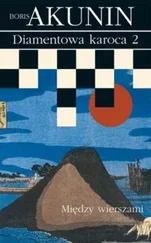Things were a little more complicated with the Shipment. The sealed wagon was due to arrive by way of a roundabout route from Naples to Batumi, and from there by railway via Rostov to the Rogozhsk shunting yard. According to the documents, it belonged to the Office of Security Escorts and was accompanied by a guard consisting of a corporal and two privates. The guard was genuine, the documents were fake. That is, the crates really did contain, as the transport documents stated, 8,500 Italian ‘Vetterli’ rifles, 1,500 Belgian ‘Francotte’ revolvers, a million cartridges and blasting cartridges. However, this entire arsenal was not intended for the needs of the Escorts Office, but for a man who went by the alias of Thrush. According to the plan developed by Vasilii Alexandrovich’s father, large-scale disturbances were supposed to break out in Moscow, putting a rapid end to the Russian tsar’s enthusiasm for the Manchurian steppes and Korean concessions.
The wise author of the plan had taken everything into account: the fact that the Guards were in St Petersburg, while the old capital had only a scrappy ragbag garrison made up of second-class reservists, and that Moscow was the transport heart of the country, and that the city had 200,000 hungry workers embittered by privation. Ten thousand reckless madcaps could surely be found among them, if only there were weapons. A single spark, and the workers’ quarters would be bristling with barricades.
Rybnikov began as he had been taught in his childhood – that is, with the hardest thing.
The staff captain arrived at the shunting yard. He introduced himself and was given an escort of a minor bureaucrat from the goods arrival section, and they set off to line number three to meet the Rostov special. The clerk felt timid in the company of the gloomy officer, who tapped impatiently on the planking with the scabbard of his sabre. Fortunately, they did not have to wait long – the train arrived exactly on the dot.
The commander of the guard, a corporal who was well past the prime of youth, moved his lips as he read the document presented to him by the staff captain, while the draymen whom Rybnikov had hired drove up to the platform one by one.
But then there was a hitch – there was absolutely no sign of the half-platoon that was supposed to guard the convoy.
Cursing the Russian muddle, the staff captain ran to the telephone. He came back white-faced with fury and let loose a string of such intricately obscene curses that the clerk shrank in embarrassment and the sentries wagged their heads respectfully. There obviously wasn’t going to be any half-platoon for the staff captain.
Having raged for the appropriate length of time, Rybnikov took hold of the corporal by the sleeve.
‘Look, mate, what’s your name … Yekimov, as you can see, this is one almighty cock-up. Help me out here, will you? I know you’ve done your duty and you’re not obliged, but I can’t send it off without a guard, and I can’t leave it here either. I’ll see you all right: three roubles for you and one each for your fine lads here.’
The corporal went to have a word with the privates, who were as long in the tooth and battered by life as he was.
The deal they struck was this: in addition to the money, His Honour would give them a paper saying the squad could spend two days on the town in Moscow. Rybnikov promised.
They loaded up and drove off. The staff captain at the front in a cab, then the drays with the crates, the sentries on foot, one on the left, one on the right, the corporal bringing up the rear of the procession. Pleased with the remuneration and leave pass they had been promised, the privates strode along cheerfully, holding their Mosin rifles at the ready. Rybnikov had warned them to keep their eyes skinned – the slanty-eyed enemy never slept.
Rybnikov had booked a warehouse on the River Moscow in advance. The draymen carried the Shipment in, took their money and left.
The staff captain carefully put the receipt from a member of the workmen’s co-operative away in his pocket as he walked over to the sentries from Rostov.
‘Thanks for the help, lads. I’ll settle up now, a bargain’s a bargain.’
The riverside wharf in front of the warehouse was deserted, and the river water, iridescent from patches of oil, splashed under the planking.
‘But Your Honour, where are the guards?’ Yekimov asked, gazing around. ‘It’s kind of odd. An arms depot with no guards.’
Instead of answering, Rybnikov jabbed him in the throat with a finger of steel, then turned towards the privates. One of them was just about to lend the other some tobacco – and he froze like that, with his mouth hanging open, so the crude shag missed the paper and went showering past. Vasilii Alexandrovich hit the first one with his right hand and the second with his left. It all happened very quickly: the corporal’s body was still falling, and his two subordinates were already dead.
Rybnikov dropped the bodies under the wharf, after first tying a heavy rock to each one of them.
He took off his cap and wiped the sweat off his forehead.
Right, then, it was only half past ten and the most troublesome part of the job was already over.
It only took ten minutes to collect the Delivery. Vasilii Alexandrovich arrived at the Moscow Freight Station in tarred boots, a long coat and a cloth cap – a regular shop counterman. He carried the sacks out himself, wouldn’t even let the cabby help, in case he might ask for an extra ten kopecks. Then he transported the ‘maize flour’ from the Brest line to the Ryazan–Uralsk line, because the Delivery’s onward route led towards the east. On the way across to the other side of the city, he repacked the goods and at the station he checked it in as two lots, with different receipts.
And that put an end to his scurrying about from one railway station to another. Rybnikov wasn’t in the least bit tired; on the contrary, he was filled with a fierce, vigorous energy – he had grown weary of idleness and, of course, he was inspired by the importance of his actions.
Expertly dispatched, received on time, competently delivered, he thought. That was the way invincibility was shaped. When everyone acted in his own place as if the outcome of the entire war depended on him alone.
He was slightly concerned about the ‘dummies’ summoned from Samara and Krasnoyarsk. What if they were late? But it was no accident that Rybnikov had chosen those precise two out of the notebook filled with snaky squiggles. The Krasnoyarsk man (Vasilii Alexandrovich thought of him as ‘Tunnel’) was greedy, and his greed made him dependable, and the Samara man (his code name was ‘Bridge’) might not be outstandingly dependable, but he had compelling reasons not to be late – he was a man with not much time left.
And his calculations had proved correct; neither of the ‘dummies’ had let him down. Rybnikov was already aware of this when he left the station for the agreed hotels – the ‘Kazan’ and the ‘Railway’. The hotels were located close to each other, but not actually adjacent. The last thing he needed was for the two dummies to get to know each other through some grotesque coincidence.
At the Railway Hotel, Vasilii Alexandrovich left a note: ‘At three. Goncharov’. The note at the Kazan Hotel read: ‘At four: Goncharov’.
Now it was time to deal with the man with the alias of Thrush, the consignee of the Shipment.
In this matter Rybnikov employed particular caution, for he knew that the Social Revolutionaries were kept under close surveillance by the Okhrana, and the revolutionary riff-raff had plenty of traitors among their own ranks. He could only hope that Thrush realised this as well as he, Rybnikov, did.
Vasilii Alexandrovich made a call from a public telephone (a most convenient innovation that had only recently appeared in the old capital). He asked the lady to give him number 34-81.
Читать дальше









